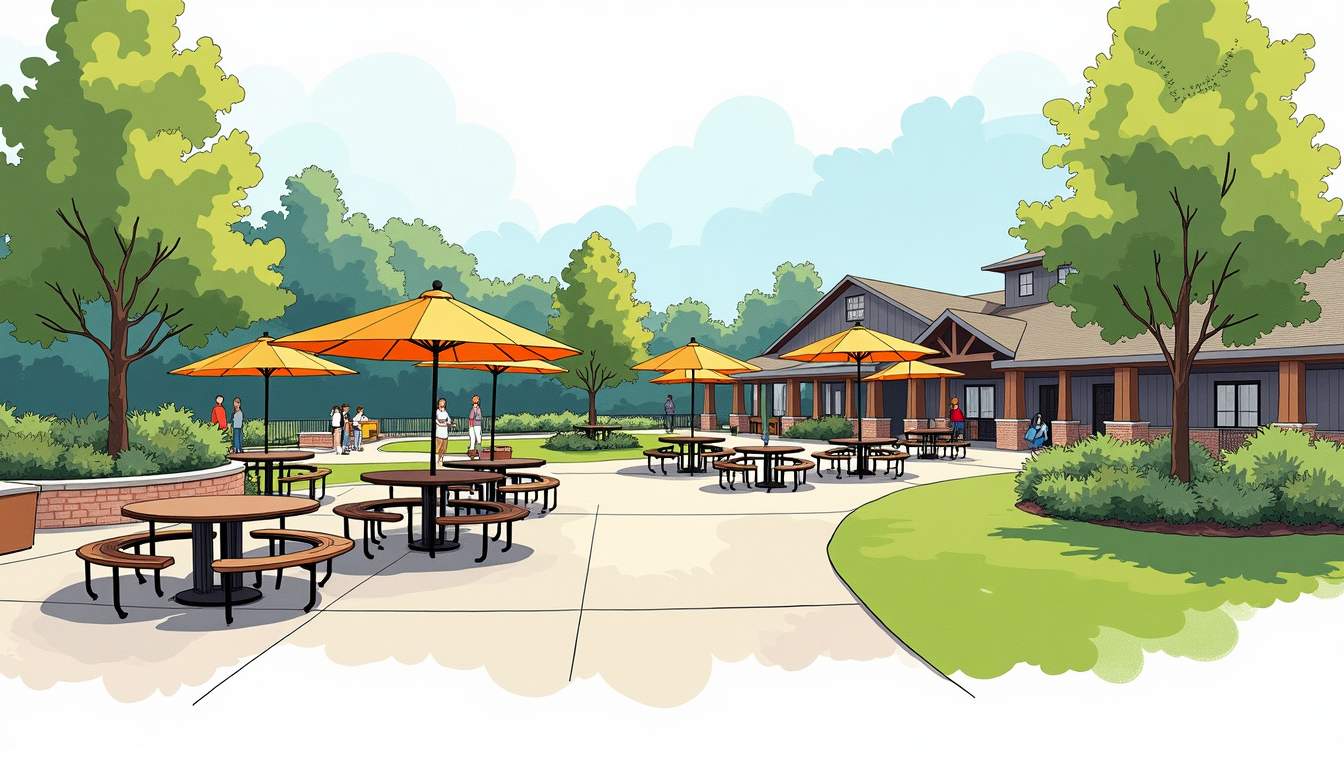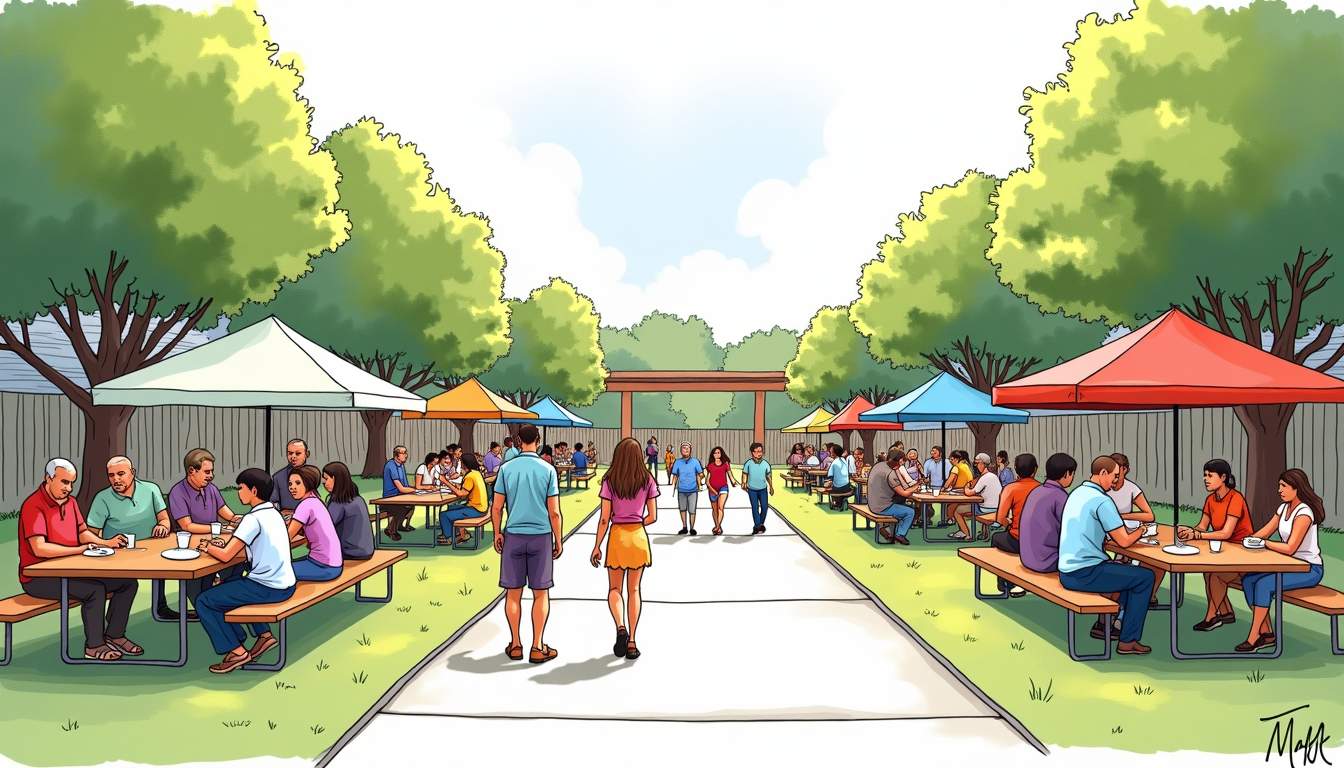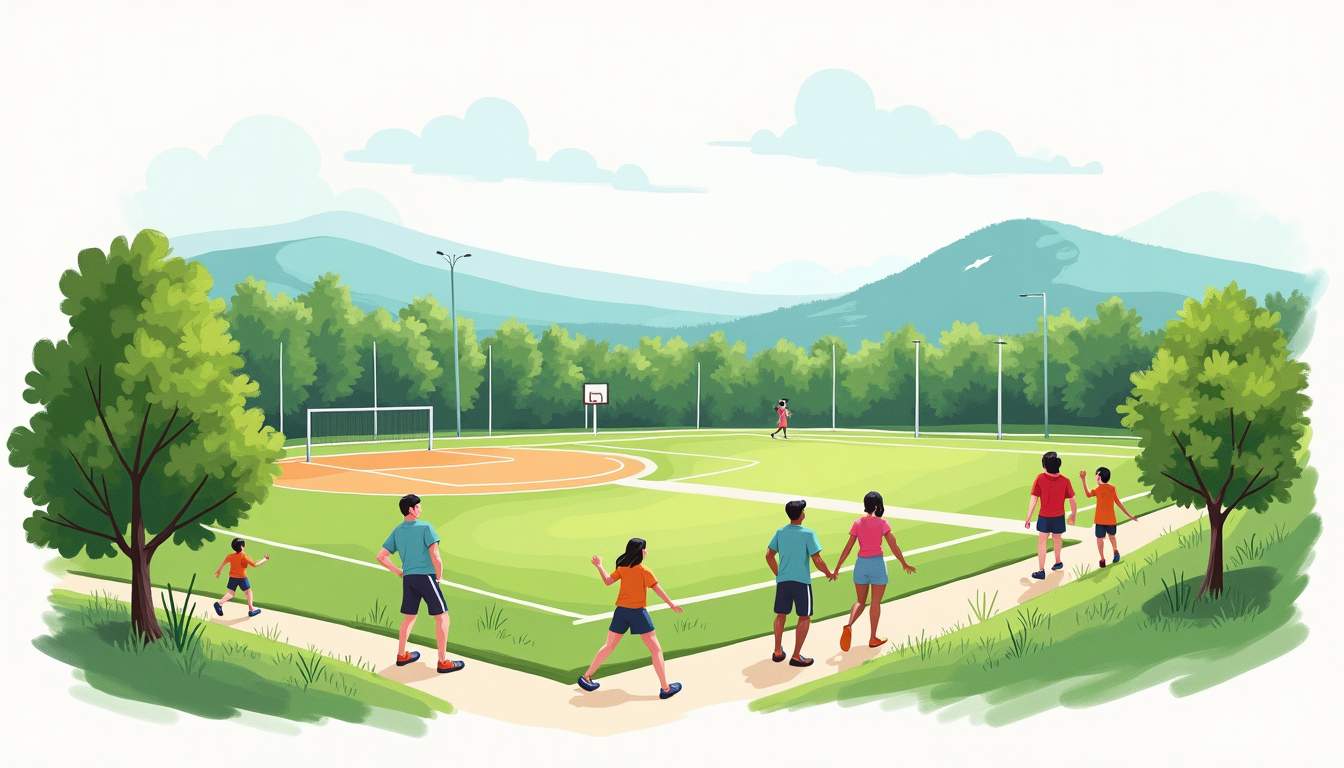
Tennessee National is more than a place to live; it is a place to belong. Community clubs within the neighborhood foster connection, health, and purpose, transforming a collection of houses into a living, breathing community. These clubs—whether centered on fitness, arts, service, or sport—create opportunities for neighbors to meet, collaborate, learn, and celebrate together. The result is a richer social life, stronger local networks, and a deeper sense of home.
Community clubs act as the social infrastructure of a neighborhood. They create routine spaces where residents can gather, bond over shared interests, and build relationships across generations. That social fabric makes everyday life more enjoyable and provides informal support systems during times of need.
Beyond social benefits, clubs contribute to individual well-being. Regular participation in a group—whether it's a walking club, book club, or volunteer committee—boosts mental health by reducing isolation and increasing a sense of purpose. These groups also promote physical health through active pursuits and encourage lifelong learning through classes and workshops.
Moreover, community clubs often serve as incubators for leadership and civic engagement. By volunteering for club responsibilities or organizing events, members develop skills such as communication, event planning, and conflict resolution. These experiences empower residents to take on broader roles within the neighborhood and beyond, fostering a culture of proactive citizenship and local involvement.
In addition, clubs can act as vital platforms for advocacy and neighborhood improvement initiatives. When residents come together, they can collectively address concerns like public safety, environmental care, or zoning changes. Such organized efforts often have greater impact and visibility than individual actions, making community clubs essential in shaping the future and quality of life within the neighborhood.
Shared traditions are born in clubs. Annual events, recurring meetups, and collaborative projects help define the character of Tennessee National. Over time, these traditions frame collective memories and give residents pride in their community. A neighborhood that celebrates together tends to be a neighborhood that protects and preserves itself.
Community clubs provide practical value as well. They serve as informal networks for sharing recommendations—local contractors, tutors, babysitters, or pet sitters. When neighbors already know one another through club participation, it becomes easier to seek and trust advice, creating a safer, more connected environment.
Successful community clubs reflect the diverse interests of residents. A well-rounded portfolio of groups ensures there is something for everyone—from high-energy activities to quieter, creative pursuits. Many neighborhoods find a balance of social, fitness, service, and hobby-based clubs works best.
Walking groups, cycling crews, yoga meetups, and golf leagues are staples in communities that value health and active living. These clubs make exercise social and sustainable; a morning walk with neighbors becomes a habit rather than a chore, and friendly competition in a golf league keeps spirits high and calendars full.
Outdoor clubs often organize seasonal events—early morning bird walks in spring, kayaking afternoons in summer, and scenic hikes in cooler months—adding variety and connecting members with the natural beauty around Tennessee National.
Clubs focused on art, music, and books create vibrant cultural opportunities close to home. A book club can spark thoughtful conversation and community debates, while an art collective might host exhibitions that showcase local talent. Music ensembles and theater groups can rehearse for neighborhood performances, turning shared creativity into public celebration.
Workshops and classes—photography, ceramics, cooking—encourage residents to pick up new skills or refine existing ones. These learning environments are especially valuable for retirees and families, fostering intergenerational mentorship and collaboration.
Family-focused clubs give parents and caregivers a sense of community and provide children with structured social opportunities. Playgroups, summer camps, science clubs, and youth sports create safe spaces for kids to grow, make friends, and learn teamwork—while giving adults a chance to exchange parenting tips and build a support network.
Volunteer organizations and civic clubs channel community energy into meaningful impact. From neighborhood cleanups to food drives and scholarship programs, service clubs help Tennessee National contribute positively to the wider region. These groups often partner with local schools, charities, and municipal programs, amplifying their reach.
Clubs do more than bring people together for shared activities; they create environments where trust and mutual respect grow. Regular interaction, collaborative projects, and even shared challenges foster strong, resilient relationships among neighbors.
Weekly walking groups, monthly potlucks, and seasonal fundraisers provide reliable social touchpoints. These recurring events help embed social engagement into daily life, making it easier for residents to maintain friendships and stay involved over long periods.
Clubs are natural forums for mixing age groups and perspectives. When teenagers volunteer alongside retirees or families take part in community theater with empty-nesters, valuable mentorship and understanding develop. That cross-generational exchange strengthens empathy and widens the social safety net of the neighborhood.
Joining a club is a low-pressure way for newcomers to meet people and find common ground. Instead of navigating social dynamics by chance, new residents can participate in shared activities and quickly become part of the neighborhood narrative. Clubs thus reduce barriers to integration and accelerate the development of friendships.
Signature events give residents something to look forward to and talk about. From holiday parades and summer concerts to charity tournaments and harvest festivals, annual traditions build anticipation and a sense of belonging.

Seasonal events harness the changing rhythms of the year and provide diverse participation points. Spring garden shows, Fourth of July gatherings, autumn harvest dinners, and winter holiday light displays each create opportunities for neighbors to connect and celebrate together.
Organizing regular volunteer days—such as park cleanups or local school support—turns community pride into visible action. These days also serve as outreach, inviting surrounding neighborhoods to join and strengthening regional ties.
Showcases like art walks, farmers’ markets, and talent nights let residents share their skills and goods. These events foster local entrepreneurship and provide a stage for neighbors to meet in a celebratory environment. They also attract visitors, increasing the neighborhood’s visibility and goodwill.
Well-run clubs rely on thoughtful leadership and clear organizational structures. Sustainability comes from balancing enthusiastic volunteerism with realistic expectations, ensuring that clubs remain vibrant without burning out leaders or members.
Rotating roles and shared responsibilities prevent burnout and keep fresh ideas flowing. Committees, co-chairs, and task-specific teams distribute workload and allow more members to develop leadership skills. Clear role descriptions and simple onboarding materials help new leaders step in smoothly.
Regular communication—through newsletters, social platforms, and bulletin boards—keeps members informed and engaged. Transparency about budgets, event planning, and volunteer needs builds trust and encourages wider participation. Technology can streamline administration, but personal invitations and face-to-face outreach remain invaluable.
Designing clubs to be inclusive ensures broad participation. Considerations like varied meeting times, mixed ability programming, childcare options, and physical accessibility make clubs welcoming to diverse residents. An inclusive approach strengthens club resilience and reflects the full richness of Tennessee National.
Understanding the impact of community clubs helps guide future efforts. Simple metrics—attendance trends, volunteer hours, funds raised, and member satisfaction—provide actionable insights. These measures inform decisions about which programs to expand, modify, or retire.

Numbers matter, but stories capture the human dimension. Testimonials about friendships formed, skills learned, or crises navigated together illustrate the true value of clubs. Sharing these stories in newsletters and at community meetings reinforces why the clubs matter and inspires new members to join.
Communities evolve, and successful clubs evolve with them. Regularly soliciting feedback, trying pilot programs, and welcoming new ideas keeps offerings fresh and relevant. Clubs that adapt to demographic shifts, seasonal patterns, and emerging interests remain central to neighborhood life.
Starting a club need not be complicated. A basic plan, a few committed members, and a clear goal can get a group off the ground. Likewise, strengthening an existing club often requires reinvigoration through new programming, outreach, or leadership changes.
Define the club’s purpose in a sentence or two. That clarity helps attract like-minded residents and set expectations. Whether the goal is social connection, skill-building, or community service, a shared purpose guides planning and decision-making.
Initial meetings can be informal—coffee gatherings, park meetups, or short workshops. Successful activities create momentum; enthusiastic members will naturally recruit others. Keep early commitments modest to encourage consistent participation without overwhelming organizers.
Combining digital platforms—community email lists, social media groups—with in-person outreach like flyers and word-of-mouth maximizes reach. Welcoming language in invitations and easy first activities reduce barriers to entry.
Clubs are a long-term investment in neighborhood vitality. They cultivate social capital that supports safety, resilience, and well-being. Over time, the connections formed in clubs ripple outward—improving local schools, supporting small businesses, and enhancing overall quality of life.

When neighbors collaborate, celebrate, and serve together, Tennessee National becomes more than a place to live; it becomes a community to cherish. The power of community clubs lies in small, consistent acts of gathering and giving that, together, build a neighborhood worth coming home to.
Embrace the vibrant spirit of community clubs and experience resort-style living like no other. At Tennessee National, you’ll find luxury homes, exceptional amenities, and a welcoming neighborhood where connections flourish. From championship golf to scenic trails and exclusive social events, there's a perfect place for you to belong. Schedule your private tour today and start making lifelong memories in a community designed to enrich every aspect of your life.